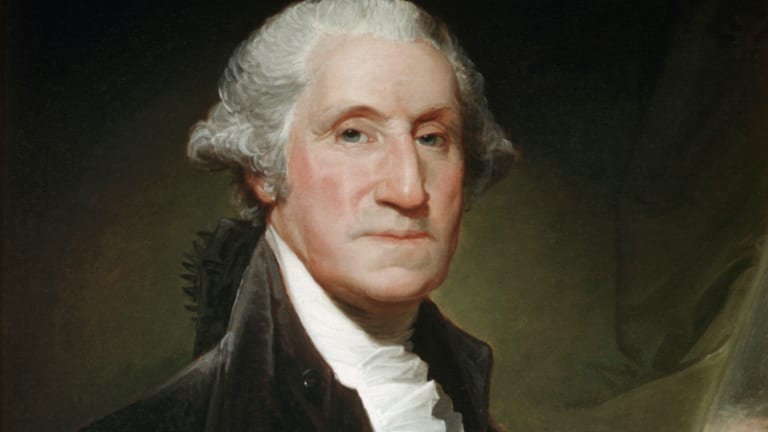On August 16, 1977, and the days and weeks that followed, the whole world mourned the death of Elvis Presley, the King of Rock and Roll.
He had such an impact on the music world. When people hear the name Elvis, they don’t need a last name for recognition. Even his clothing and hair were iconic. More importantly, a single note from Elvis’s mouth is easy to identify.
Elvis was a legend when he was alive and remained as such long after his death.
How did he die? Let’s talk about the end of the Elvis era.
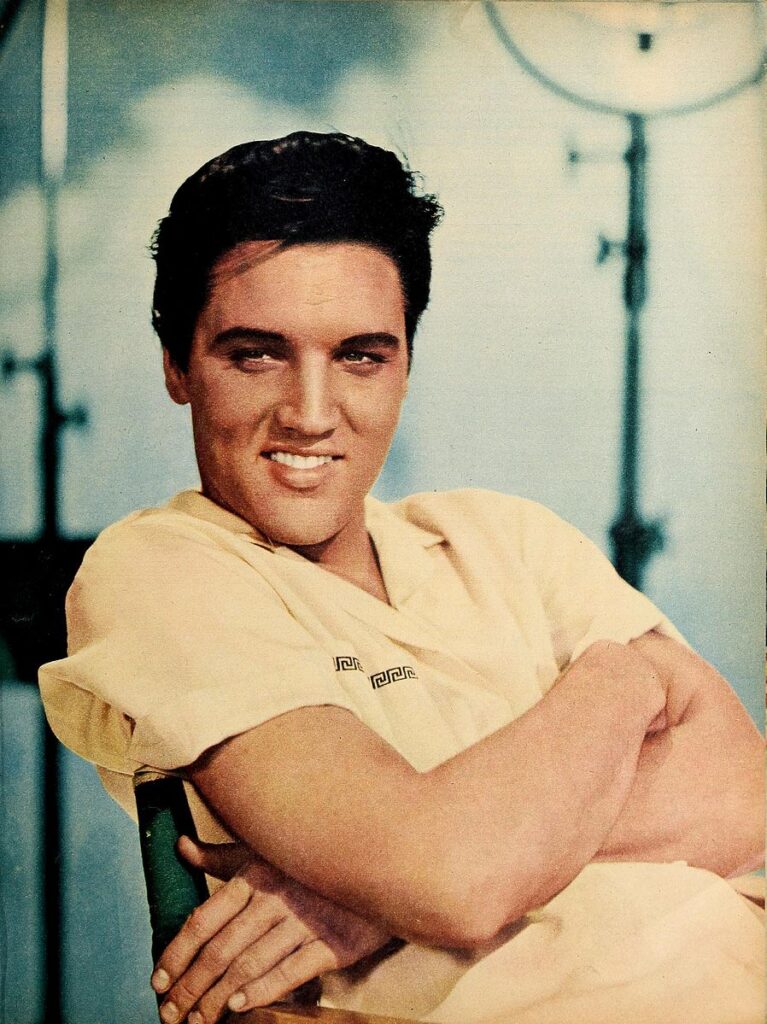
A Glimpse Into the Making of a Legend
Elvis was born to Gladys and Vernon Presley on January 8, 1935, in East Tupelo, Mississippi, in what is known as a shotgun house. They were very poor: a shotgun house is a small property only 12 feet wide. Moreover, East Tupelo was referred to as the “roughest town in north Mississippi.”
The Presleys went to the Assembly of God Church, where the music deeply resonated with young Elvis. At ten years old, he joined a singing contest and began playing guitar on his 11th birthday.
Discovery
There were disputes in the discovery of Elvis—many music bigwigs wanted to take credit for it.
The truth is that Elvis had the biggest hand in his initial success. At 18 years old, fresh out of high school, Elvis recorded two songs at the Memphis Recording Service. It was owned by Sam Phillips, who brought Johnny Cash and B.B. King to the world. He took credit for Elvis’ stardom.
In 1954, Phillips grouped Elvis with guitarist Winfield “Scotty” Moore and bass player Bill Black to form a trio. Elvis’ name slowly became more known in Memphis.
Popularity
By 1956, Elvis had a full band and backup singers. He was being invited to play on TV programs. In March, he released his self-titled album.
Elvis’ true star power became evident when he appeared on the Ed Sullivan Show on September 9, 1956. A record-breaking $50,000 contract was signed for Elvis’ three consecutive appearances on the show. It was well worth the money, as his appearances were the most-watched broadcast in the 1950s.
Elvis’ scandals only further boosted his popularity. Every time Elvis performed live, audiences went wild, especially the women. They would dance and scream to the music and cry for Elvis. Some fainted from hysteria.
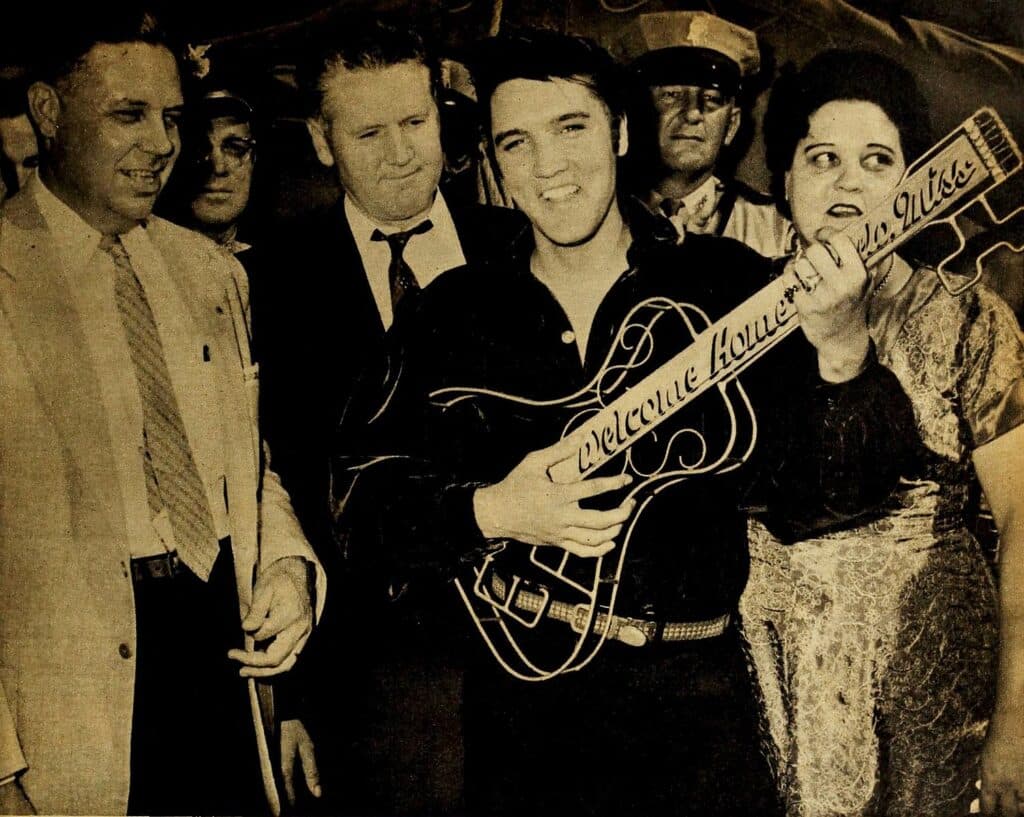
Draft
Elvis was drafted into the army in 1957 and began training in 1958. He was stationed in Germany shortly after his mother died in 1958. He served for two years before he was honorably discharged.
The famous singer could have avoided service, but Colonel Tom Parker, his manager, thought it was the perfect way to manage Elvis’ divisive reputation. He was able to record a few songs in between training.
Love
When Elvis was posted in Germany, he met Priscilla Beaulieu. Her stepfather was in the United States Air Force stationed in the area. She was only 14 years old.
They got married in 1967, when Priscilla was 22, and had a daughter, Lisa Marie.
Elvis and Priscilla were only married for five years, but they remained cordial. Elvis’ health started failing just as their marriage was on the rocks.
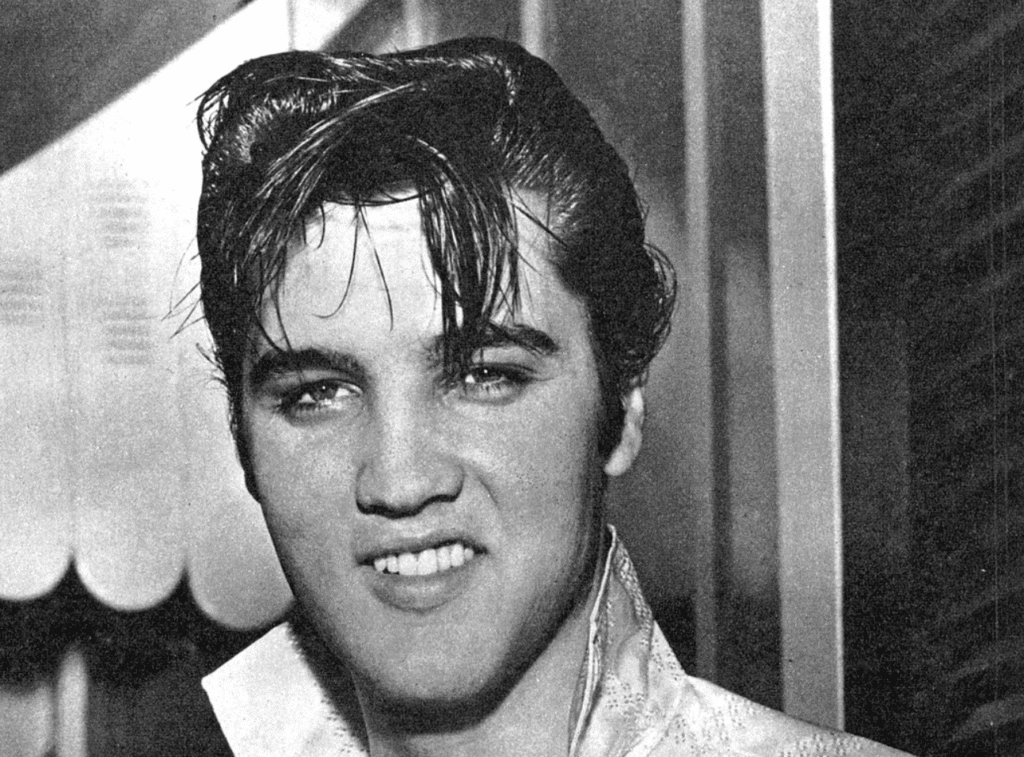
Health Issues
By 1973, Elvis had overdosed on barbiturates twice. In one incident, he was comatose for three days.
Elvis took various prescription drugs. But he did not think he was a junkie because he was getting his narcotics fix from doctors.
He was being treated for several chronic conditions, including hypertension, coronary artery heart disease, mild diabetes, enlarged colon, glaucoma, and constipation, among others. His own physician said that Elvis only accidentally abused drugs.
Despite his serious drug and related health issues, Elvis embarked on busy tours that saw him on hundreds of stages over the years.
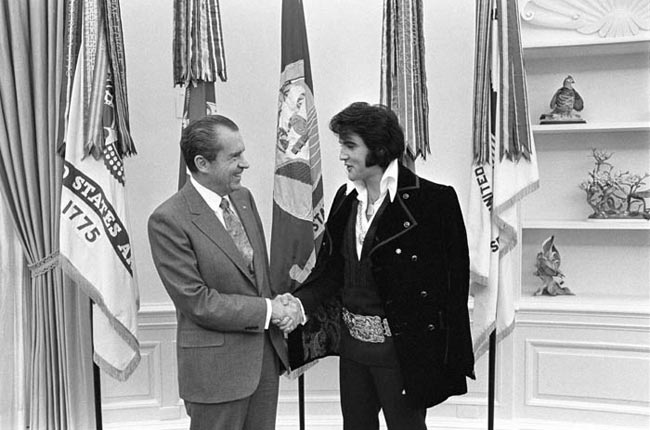
The Death of a Rock ‘n Roll Legend
On the afternoon of August 16, 1977, paramedics were called to his $1 million mansion, Graceland, after Elvis reportedly had difficulty breathing. When the emergency team arrived, they found a group of people huddled over a man wearing mismatched pajamas: a yellow top and blue bottoms.
He was already cold when paramedics loaded all of his 250 pounds on the ambulance. Medical personnel still tried to revive him when he arrived at the hospital and pronounced him dead at 3:30 pm.
He was only 42 years old.
Official police records noted that Elvis was on the toilet reading when he suddenly had what seemed like a cardiac episode and lunged forward.
Controversy
Elvis’ physician, Dr. George Nichopoulos, did not report a cause of death. Years later, it was found that Dr. Nick, as most patients called him, was responsible for prescribing Elvis more than 19,000 pills, tablets, and injectables from January 1975 to August 1977.
Nichopoulos reasoned that any other doctor would prescribe Elvis the same because of his many health conditions.
After a two-hour autopsy, Dr. Jerry Francisco, the medical examiner for the county, reported to the press that preliminary findings indicated the cause of death was cardiac arrhythmia, with no involvement of drugs.
He went so far as to say that Elvis would have passed away even without the cocktail of drugs found in his system. This included high doses of opiates and codeine, among others.
However, it was later revealed that Dr. Francisco made this public statement without the consent of two other pathologists who actually performed the post-mortem examination. He did so at the request of Elvis’s family members, who did not want the extent of the legend’s drug addiction to become public.
The autopsy reports have been reopened and reexamined several times since, and the cause of the cardiac arrhythmia that led to his death remains disputed.
Gone But Never Forgotten
The legend’s death didn’t muddle his celebrity status. He died with over 100 hits that charted on the Billboard Hot 100 and sold over 500 million records worldwide. Some of his enduring songs include Can’t Help Falling in Love, Jailhouse Rock, Burning Love, and many more.
Music enthusiasts across all ages and generations have loved his songs. His spirit has been kept alive for decades through his impersonators, who are mainstays in Las Vegas. Many movies have also depicted Elvis’ life and career.
It’s been 46 years since Elvis passed, but people continue to talk about his legacy. He is undoubtedly a cultural force of the 20th century that changed the face of pop culture and will never be forgotten.

